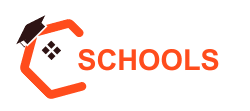Washington State Schools
Washington State Public School and Education System
In the lush and diverse landscapes of the Pacific Northwest lies Washington State, home to a vibrant and dynamic public school system that strives to foster the growth and development of its students. With a commitment to excellence, innovation, and inclusivity, Washington's education system stands as a beacon of progress and opportunity for learners of all backgrounds.
Foundation of Excellence
At the heart of Washington State's public school system is a dedication to providing quality education to every child, regardless of zip code or socioeconomic status. The state's constitution mandates ample funding for education, ensuring that resources are allocated equitably across districts. This commitment to financial equity forms the cornerstone of Washington's education system, empowering schools to deliver a high standard of education to all students.
Innovative Approach
Washington's education system embraces innovation as a means to engage students and prepare them for success in an ever-evolving world. The state has been at the forefront of educational reform, championing initiatives such as STEM (Science, Technology, Engineering, and Mathematics) education, personalized learning, and career and technical education (CTE) programs. These initiatives aim to equip students with the skills and knowledge needed to thrive in the 21st-century workforce, where proficiency in STEM fields and technical skills are increasingly in demand.
Moreover, Washington has made significant strides in integrating technology into the classroom, recognizing its potential to enhance learning experiences and broaden access to educational resources. From interactive whiteboards to online learning platforms, technology plays a pivotal role in shaping the educational landscape of the state, ensuring that students have access to cutting-edge tools and resources that facilitate their learning journey.
Focus on Equity and Inclusion
Washington State's commitment to equity and inclusion is evident in its efforts to address disparities in educational outcomes and opportunities. The state prioritizes diversity and cultural competency, recognizing the importance of creating inclusive learning environments where all students feel valued and supported.
In recent years, Washington has implemented various initiatives aimed at reducing achievement gaps and promoting educational equity. These include targeted support for English language learners, culturally responsive teaching practices, and programs to address the needs of students from historically marginalized communities. By fostering a culture of inclusivity and embracing the rich diversity of its student population, Washington's education system endeavors to ensure that every child has the opportunity to succeed, regardless of race, ethnicity, or socioeconomic background.
Community Engagement and Collaboration
Collaboration between schools, families, and communities is essential to the success of Washington State's public education system. The state recognizes the importance of strong partnerships between educators, parents, and community stakeholders in supporting student learning and well-being.
Washington encourages active involvement from parents and guardians in their children's education through initiatives such as parent-teacher associations, family engagement workshops, and community outreach programs. By fostering open communication and collaboration between schools and families, Washington seeks to create a supportive network that empowers students to thrive academically and socially.
Additionally, partnerships with local businesses, nonprofit organizations, and higher education institutions play a crucial role in enriching the educational experiences of Washington's students. Through internships, mentorship programs, and collaborative projects, students have the opportunity to apply their learning in real-world contexts and explore future career pathways.
Challenges and Opportunities
Despite its many strengths, Washington State's public education system faces several challenges, including funding constraints, teacher shortages, and persistent achievement gaps. Addressing these challenges requires a concerted effort from policymakers, educators, and community leaders to ensure that every child receives a high-quality education.
Moreover, the COVID-19 pandemic has presented unprecedented challenges for schools, forcing educators to adapt to remote and hybrid learning models virtually overnight. While Washington has made significant investments in technology and infrastructure to support remote learning, the pandemic has highlighted the need for continued innovation and flexibility in the delivery of education.
Looking ahead, Washington State's public education system remains committed to unlocking the potential of every student and preparing them for success in an increasingly complex and interconnected world. By embracing innovation, equity, and community engagement, Washington continues to lead the way in shaping the future of education for generations to come.
Schools By State
Schools in Texas
Schools in New York
Schools in Illinois
Schools in Florida
Schools in Ohio
Schools in Michigan
Schools in Pennsylvania
Schools in North Carolina
Schools in Minnesota
Schools in New Jersey
Schools in Washington State
Schools in Missouri
Schools in Georgia
Schools in Wisconsin
Schools in Virginia
Schools in Colorado
Schools in Indiana
Schools in Tennessee
Schools in Massachusetts
Schools in Oklahoma
Schools in Kentucky
Schools in Alabama
Schools in Maryland
